Gardeners often ask, “How do I get rid of slugs naturally?” since chemical slug killers aren’t just damaging to the environment, but also to your garden. Pesticides shouldn’t be used around edible crops since they may impact human health.
The most reliable ways to get rid of slugs naturally include: diatomaceous earth, encouraging predators, growing resistant crops, & adjusting the watering schedule. Setting up beer traps and installing borders of copper strips around plants will also reliably get rid of slugs.
There are several other methods for slug control too. Understanding how to apply the different slug control methods and how to save different crops against slugs is the key to ensuring there’s no further slug damage in your garden.
How Do I Get Rid Of Slugs Naturally
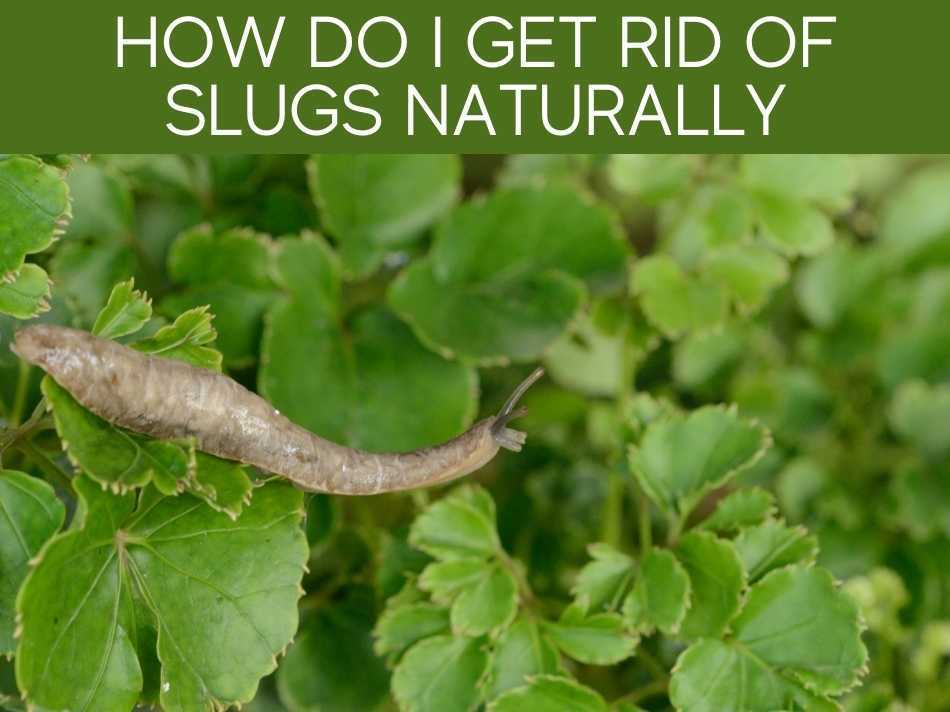
Slugs eat leaves, flowers, fruit and anything else that comes in its way.
Seedlings suffer the most damage when slugs visit them, decapitating them and leaving only stems sticking out of the soil.
If you’re tired of watching slugs and snails play havoc in your garden, it’s time to take action.
A combination of natural techniques are often used to get rid of slugs in the garden.
Sprinkling salt on slugs kills them but be sure not to apply too much salt to plants as it can negatively impact them.
Applying nematodes to the soil is also effective in getting rid of slugs.
These soil-dwelling microorganisms act as a parasite inside the slug’s body once they are consumed, paralyzing them and killing them eventually as a result of dehydration.
Nematodes need to be combined with water before applying to the soil, with the soil temperature being at least 41°F to work.
How To Deter Slugs Naturally
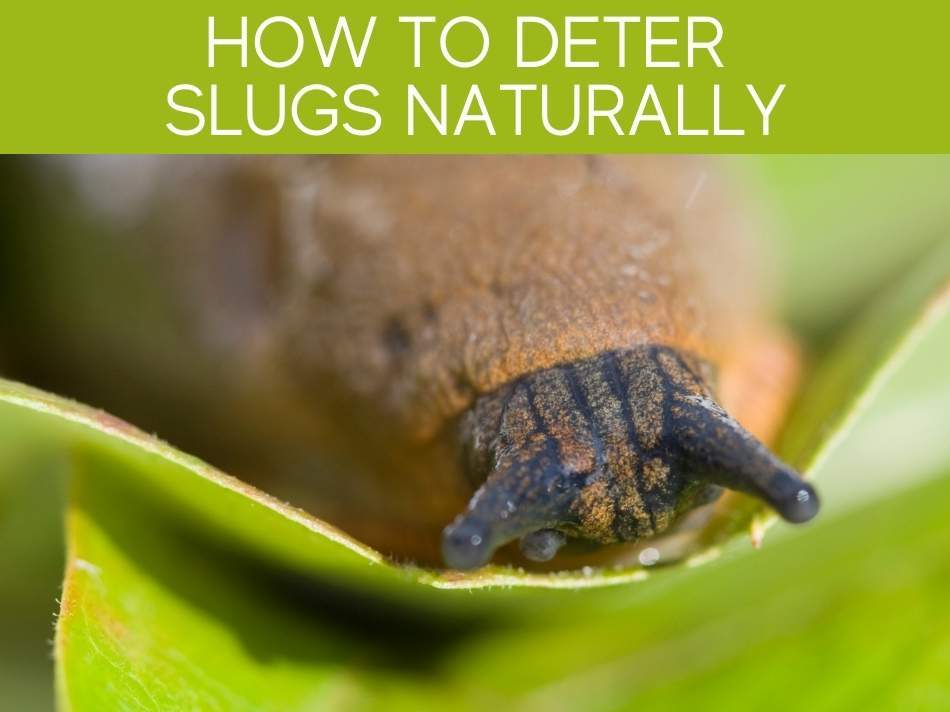
Slugs are a common existence in gardens at springtime.
Though getting rid of slugs once they appear is a time-consuming task, creating a garden that deters these creatures naturally is a much better solution.
One approach is to plant slug repellent plants around the garden, among your flower, fruit and vegetable plants to deter slugs.
There are many plant varieties, primarily those with a strong smell or prickly texture of leaves, that deter slugs.
Wormwood, fennel, anise, rue, and rosemary are some popular choices to keep slugs out of the area.
Additionally, planting white clover attracts ground beetles to your garden which are natural predators for garden slugs.
So growing clover around your garden can also help keep the slug population down.
How To Keep Slugs Off Plants Naturally
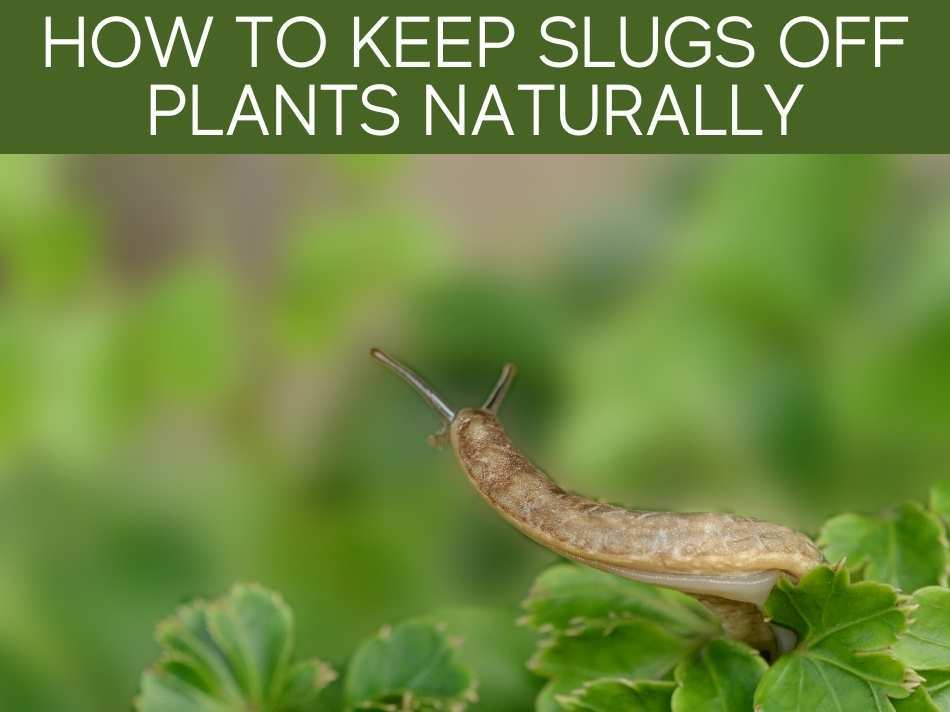
While there are several kinds of slug-killing formulas available in the market, toxic pesticides aren’t good for your health if applied to edible crops, disrupt the beneficial wildlife in your garden and harm the environment.
Instead, many gardeners try to look for non-toxic, natural ways to keep slugs off their precious plants, causing little or no harm in the process.
An effective natural method for slug control is to apply some sort of natural slug-repellent around your most vulnerable plants.
Any prickly material, including crushed eggshells, diatomaceous earth, and pine needles make it hard for the slugs to crawl over.
Spread such material around the plant as a boundary to keep out the slugs.
While diatomaceous earth loses its efficacy when wet and will thus need to be reapplied after rain, this is not the case with eggshells and pine needles.
While sprinkling salt around the plants works in the same way, making it harder for slugs to crawl with prickly salt under their body, gardeners advise against creating salt barriers.
When salt dissolves in the irrigation water or rain and seeps into the ground, it acidifies the soil, making it hard for plants to thrive or, sometimes, even survive.
How To Get Rid Of Slugs Organically
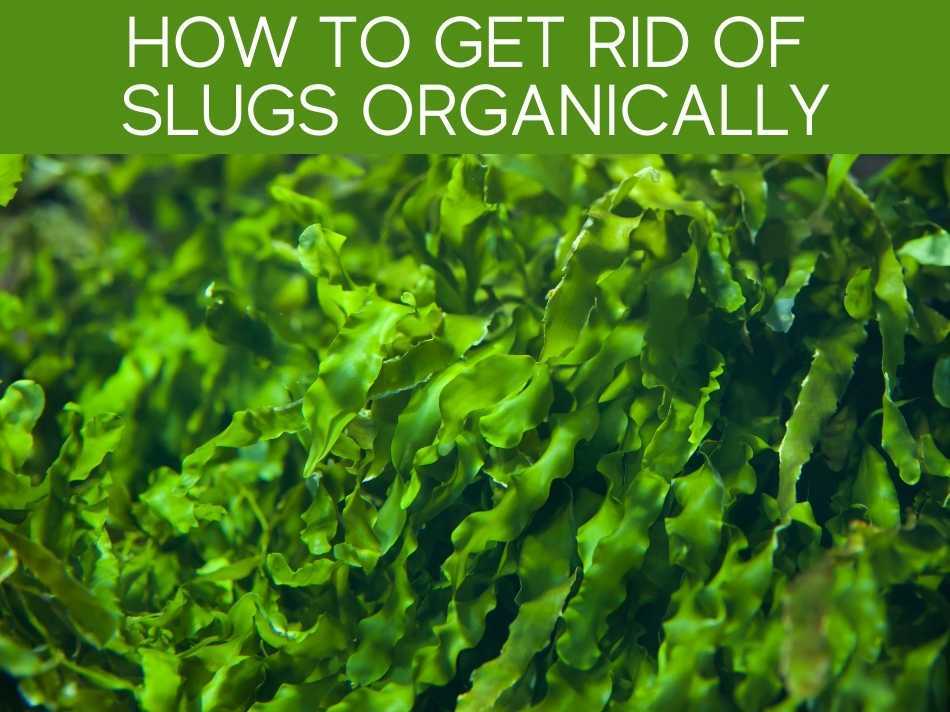
While it’s true that slugs and snails can inflict heavy damage on your garden, chemical control isn’t the only effective option to get rid of them.
Many non-chemical, eco-friendly techniques are just as effective and quick in getting rid of slugs.
If you live in a coastal region and seaweeds are easily accessible, you’re in luck with your slug problem.
A popular organic slug control method is to introduce seaweeds to the garden.
Seaweeds naturally repel slugs.
Create seaweed borders around the plants in your garden that are most susceptible to slug damage.
When these seaweeds dry with the sun, they become rough, preventing slugs from crawling over them with their slimy body to reach the plants.
Sprinkling sharp sand around the plants also repels slugs and protects your vulnerable crops.
How Do You Keep Slugs Off Strawberries Organically
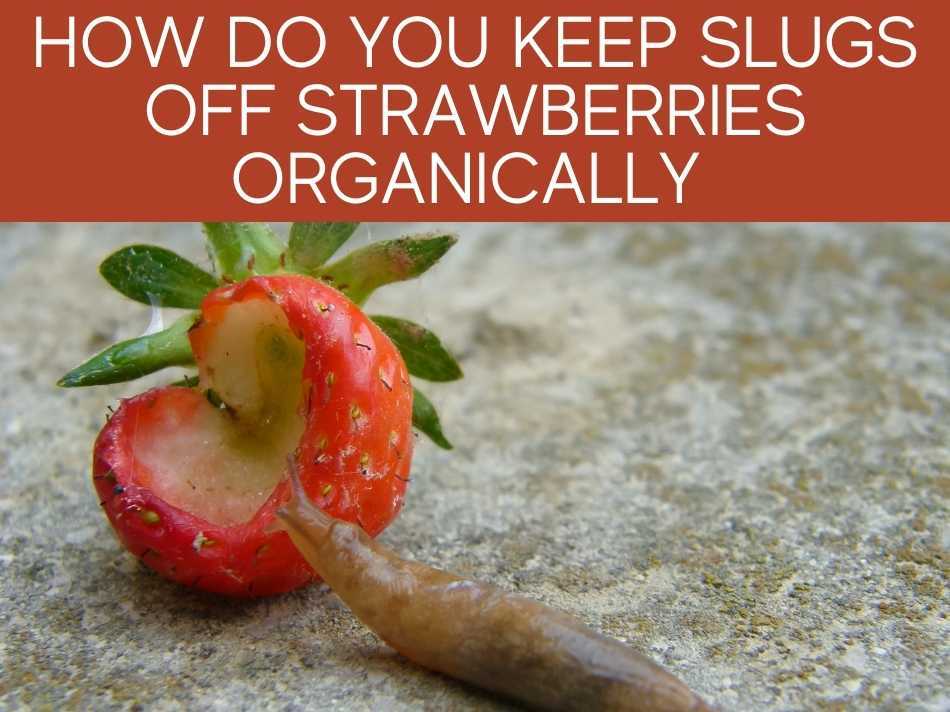
If you find small, deep holes in ripe strawberry fruits, typically just under the cap, you’re most likely dealing with slugs.
Slugs are most active during damp weather, around the same time that strawberries start ripening.
If you don’t want to give away the bigger part of your beautiful strawberry harvest to these pesky creatures, it’s worth making an effort to keep slugs off the plants.
Remove leaves and other plant debris and mulches from around the strawberry plants to eliminate slugs’ ideal hiding spots.
Water deeply, but less frequently to prevent wet soil which slugs prefer to crawl over.
In addition, creating copper barriers around the strawberry plants is a very effective method to keep slugs off organically.
Copper interacts with the slime given off by the slugs’ bodies to create symptoms of the nervous system similar to an electric shock.
This unusual effect keeps the slugs away from copper bordering your precious strawberry plants.
Check out our full article on keeping slugs out of strawberries.
How To Get Rid Of Slugs Home Remedies
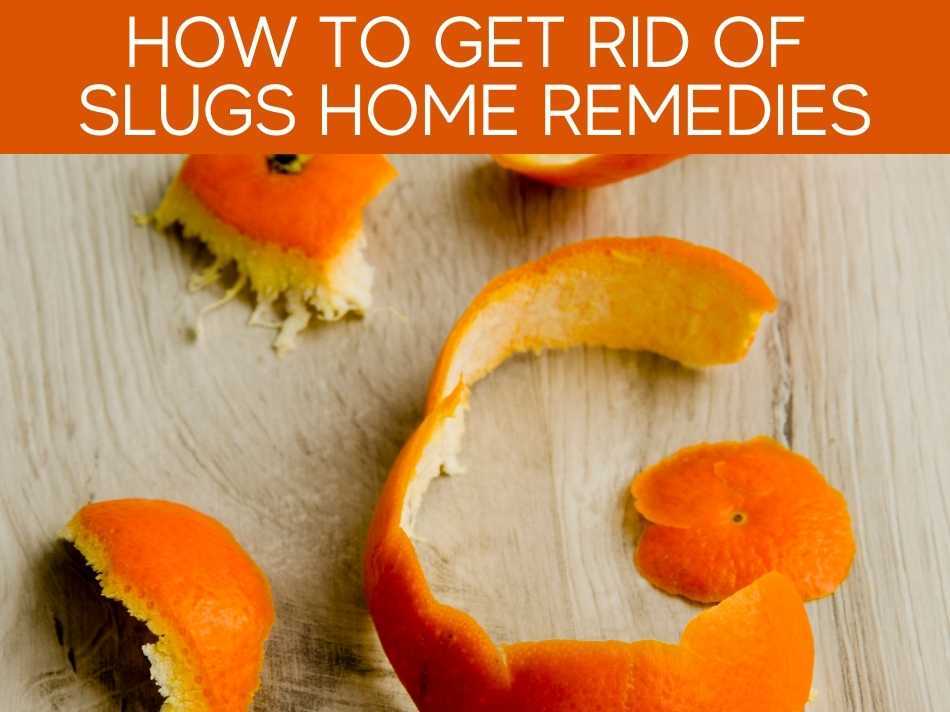
Many gardeners struggle with slugs in the garden, especially when the weather is damp.
This popular issue has led to the development of a series of home remedies to cater garden slugs.
The most effective home remedies against garden slugs include:
- Slugs are attracted to citrus fruits. Place inverted rinds from citrus fruits, including grapefruit, lemon, lime, and orange around the garden and throw out the slugs that collect under the rinds each morning.
- Sprinkle diatomaceous earth around the plants to deter slugs.
- Remove mulches, plant debris and organic matter from around the plants to eliminate their hiding places.
There are many things you can do to get rid of slugs in your garden with some simple material that’s almost always available at home.
How To Get Rid Of Slugs With Beer
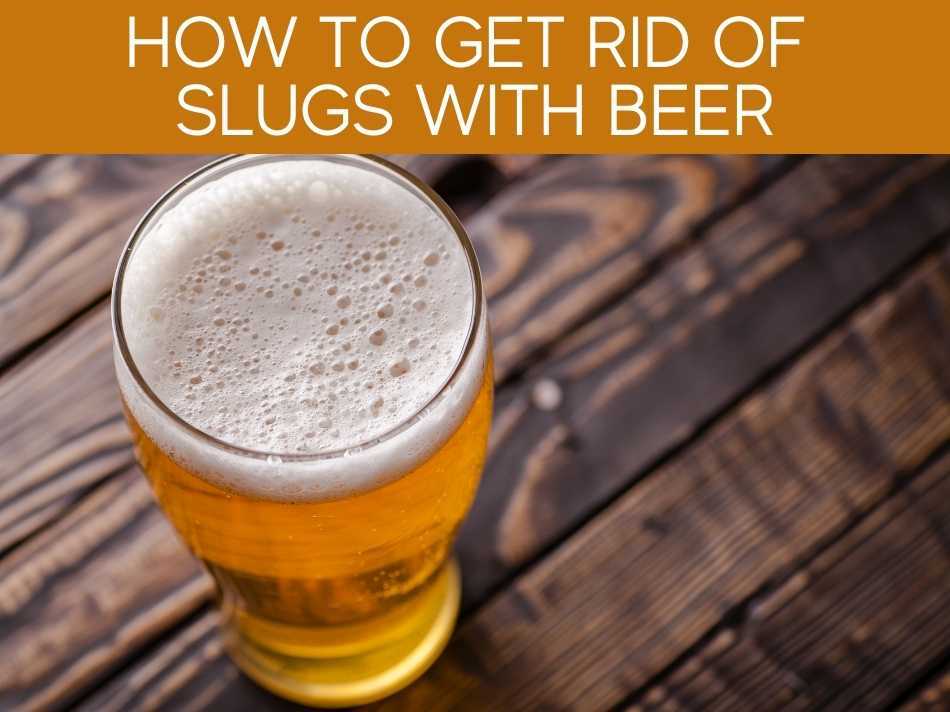
If you’ve struggled with slugs in your garden, this may not be the first time you’ve come across the beer trap.
Being easy and effective, it is among the favorite slug control tricks for gardeners.
Slugs are attracted to fermenting material, beer being one of them.
Bury shallow containers into the soil between your plants with the rim in line with the soil surface and fill them with beer.
Throw out the slugs every few days as they crawl into the container and drown.
You’ll need to place multiple beer dishes around the garden since they’re only effective in a few feet range.
See our complete article on using beer in the garden.
How Do I Get Rid Of Slugs And Snails With Coffee
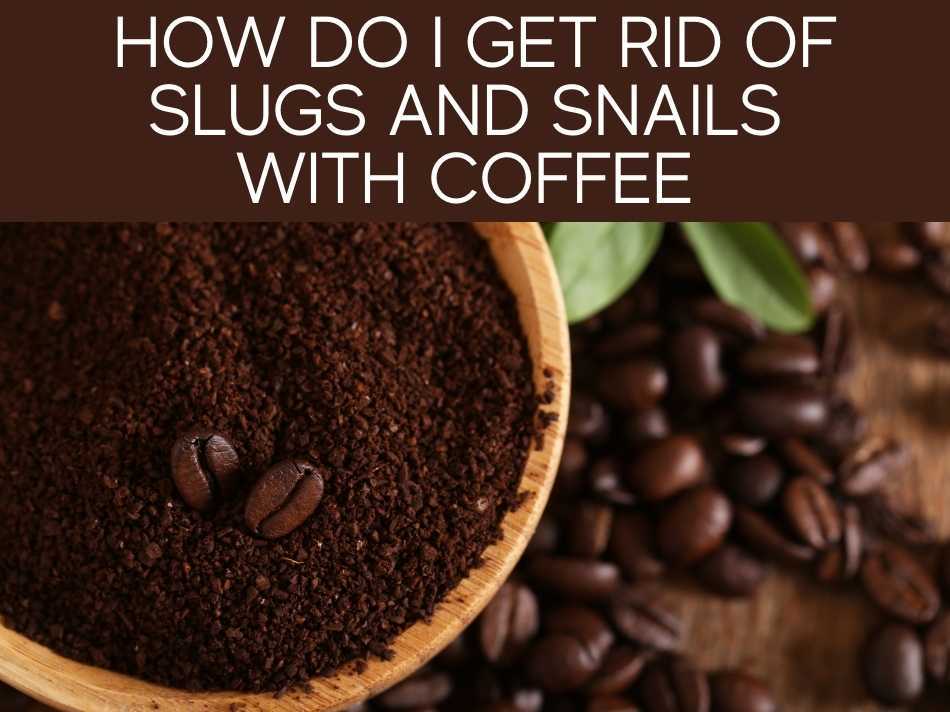
While many of us love waking up to the refreshing smell of coffee brewing, slugs seem to hate it.
Scatter coffee grounds around the plants suffering from slug damage.
Slugs will keep away from the plants bordered with coffee grounds.
Mix it with crushed eggshells before creating a boundary around the plants to increase the effectiveness.
Besides deterring slugs, coffee grounds will slowly decompose, enriching the soil with nutrients.
Check out the complete article on using coffee grounds in the garden.
How Do You Get Rid Of Slugs In The House
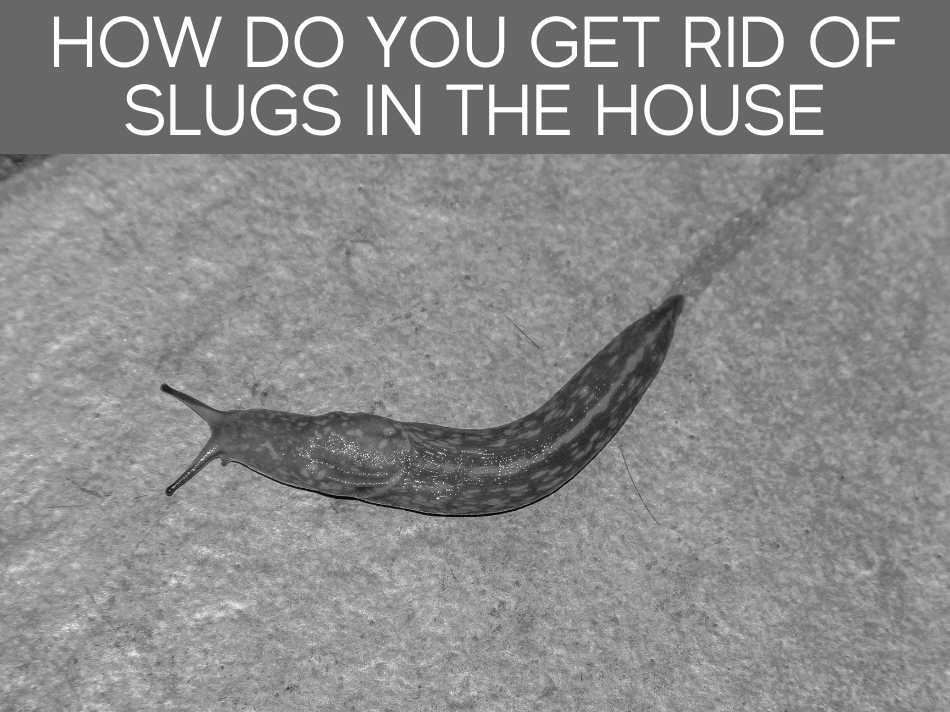
There are several ways for getting rid of slugs in the house.
One of the most straightforward ways is to delegate the job to predators.
Think of creatures that feed on slugs and encourage them in the garden.
Beetles, hedgehogs, birds and frogs are some of the animals that feed on slugs.
Create attractions for wildlife in your garden by setting up a bird feeder, a pond or hedgehog shelter.
The slug population will naturally decline, saving your plants against further damage.
How To Keep Slugs Out Of Your Garden
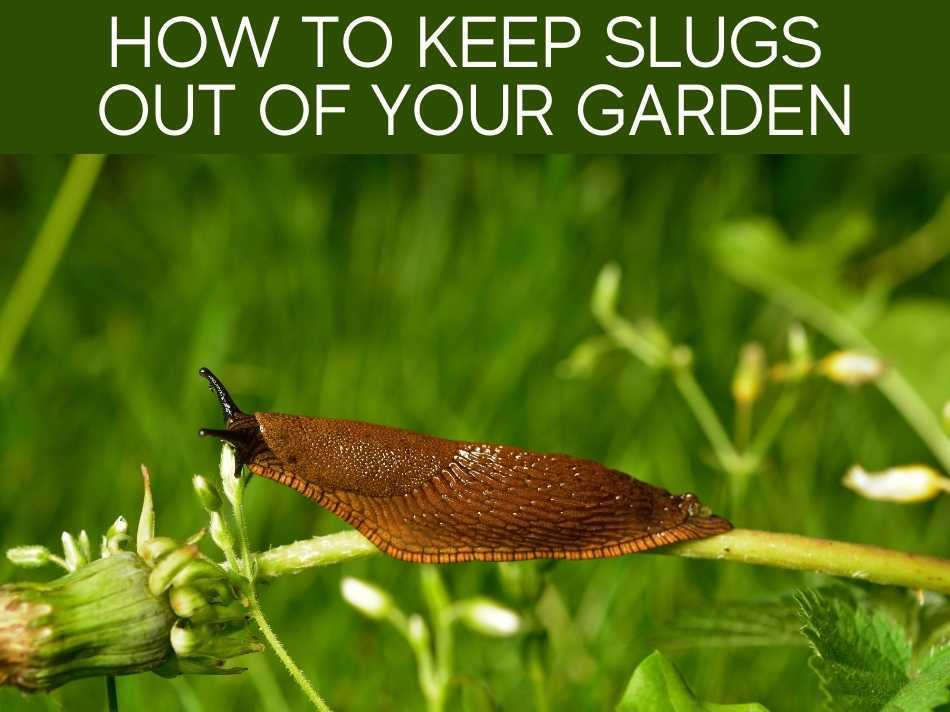
The key to keeping slugs out of your garden is to make the area inhospitable for the pests.
Slugs like damp, dark places so make sure your garden has as little of these as possible.
Water the garden in the morning, so the soil has plenty of time to dry up before evening, when the slugs become active.
Remove mulch to prevent slugs from seeking shelter under them during daytime.
Rake the garden in early spring to get rid of plant debris and to expose slug eggs to predators.
All of these gardening practices will make your garden less attractive to slugs, ultimately helping in keeping them away.
See the complete guide to keeping slugs out of your garden.
How To Stop Slugs On Hostas
Slugs love feeding on hostas, leaving holes in the foliage.
Damp spring is the time when your plants, especially hostas are susceptible to slug damage.
Besides all the home remedies and natural techniques to stop slugs, many gardeners hunt and handpick slugs in the evening.
Pick off any slugs that you find and destroy them or put them in the compost pile.
Any slugs that survive your evening patrols will slow down with the advent of the cold winters.
Conclusion
While there are so many tried-and-tested natural techniques for getting rid of garden slugs, you won’t need to resort to strong chemicals that may harm you, your family or the environment.
